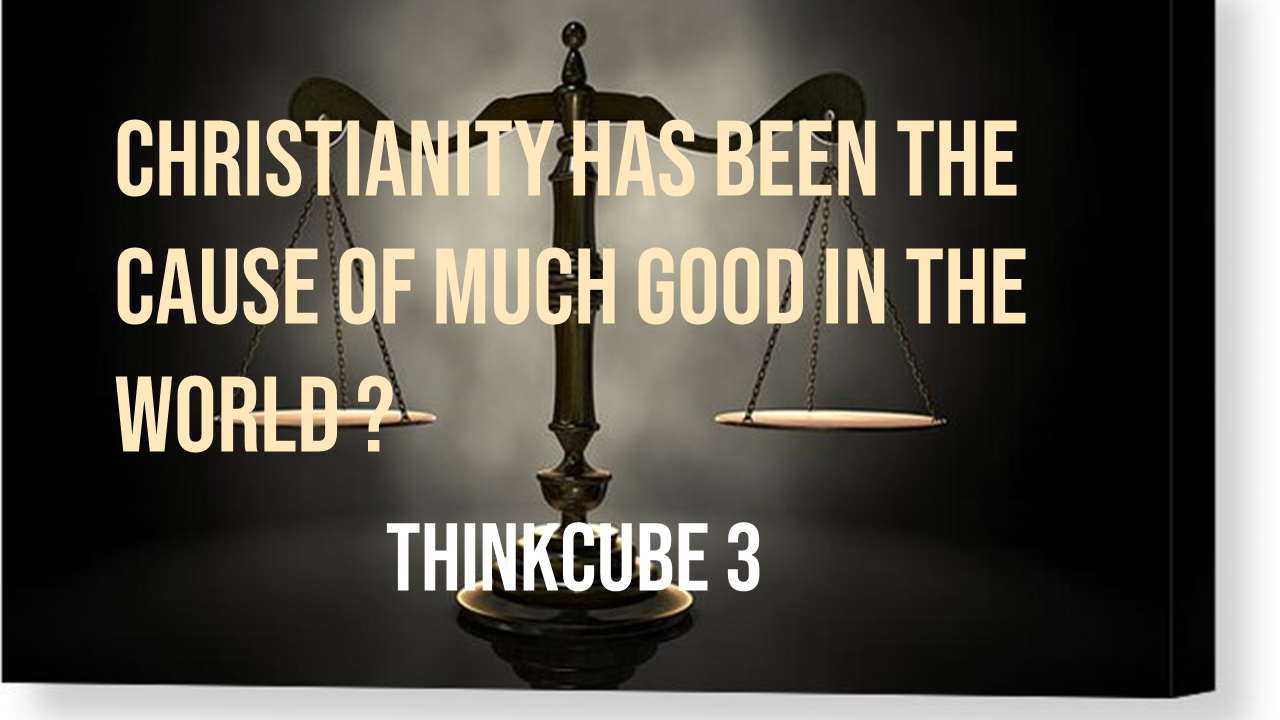
Premise 1 : Christianity’s core beliefs instills a deep concern for the poor that mobilizes it’s adherents
An important aspect of Jesus’ ministry was his emphasis on helping the neediest and lowliest in society. For example, his Parable of the Good Samaritan (Luke 10:30-37) is a classic illustration that is still part of our language today.
Jesus and the New Testament emphasized concern for the poor as a core doctrine.
Jesus said to him, “If you would be perfect, go, sell what you possess and give to the poor, and you will have treasure in heaven; and come, follow me.
Matthew 19:21
But if anyone has the world’s goods and sees his brother in need, yet closes his heart against him, how does God’s love abide in him?
1 John 3:17
The Old Testament commanded active concern for the poor as well.
When you reap the harvest of your land, do not reap to the very edges of your field or gather the gleanings of your harvest. Do not go over your vineyard a second time or pick up the grapes that have fallen. Leave them for the poor and the foreigner. I am the LORD your God
Leviticus 19:9-10
Whoever is generous to the poor lends to the Lord, and he will repay him for his deed.
Proverbs 19:17
The Bible mentions the poor 194 times, orphans 78, and widows 91. The emphasis on ministry to the needy is one of the most expansive themes in all of Scripture.
Hence, the Christian emphasis on benevolence has led to active participation on a personal and corporate level.
Studies have found that religious communities exhibit higher levels of giving and volunteering for both religious and nonreligious causes.
There is a “staggering difference between the charitable giving practices of the religiously affiliated and those with no religious affiliation.” While 62 percent of religious households give to charity, only 46 percent of nonreligious households do.
Bradford Richardson : The Washington Times; Religious people more likely to give to charity, study shows October 30, 2017
Barna Research Institute calls people that exhibit both a consistent emotional and practical response to poverty Responsive Supporters.
67% of Responsive supporters polled were Christians, and 43 percent are practicing Christians who have been to church in the past month.
Someone with a religious affiliation was more than two times more generous than someone without a religious affiliation. And among those with a religious affiliation, religious intensity really matters. Those who attend services were much more likely to give, whether it’s monthly or weekly. We really see the connection grow with continued involvement in a religious community.
David King, Director Family school of Philantropy, University of Indiana
A majority of these Responsive Christians believes that helping the poor, in turn, helps Christians understand the heart of Christ (58 percent). And most have spent significant time praying for the poor (53 percent). Forty–four percent of Responsive Christians say that their churches should prioritize spending resources to address poverty in other countries.
Discussion Question 1 : Based on these statistics, does it appear that Jesus’s teachings on the poor has has led to direct action by Christians to help alleviate global poverty ?
Premise 2 : Christianity helps mobilize civil society to help eliminate global poverty
The New Zealand Journal of Social Sciences has compiled research to explain the influence of religion on public involvement in poverty alleviation.
They offered 3 sociologically based reasons for religion and Christianity’s super influence in the fight against global poverty.
Social Capital : The explanation for religious involvement in poverty alleviation (particularly philanthropic activity) most commonly advanced is that of ‘social capital’. Popularized by Robert Putnam, ‘social capital theory’ is based on the concept that social networks are of value, due to the interpersonal connections inherent in such networks-‘social networks and the norms of reciprocity and trustworthiness that arise from them’
Faith communities … are arguably the single most important repository of social capital in America’ . Religious people participate more in both politics and charitable activities, attributed primarily to the connectedness of religious individuals within congregations and faith communities
Robert Putnam: Political Scientist, Professor of Public Policy Harvard University
Content : This includes both religious beliefs or teachings, and the values, practices and norms which they underpin. In this way, religious content links thought with action making it a powerful mobilizing force.(Kliksberg Facing the inequalities of development: some lessons from Judaism and Christianity. Development, 46(4): 57–63.)
The Christian tradition is of greatest relevance here (due to its larger presence in developed societies and International Development), and much of its content promotes involvement in poverty alleviation. Perhaps the most obvious expression of this is the ‘Golden Rule’, ‘love your neighbour as yourself’ (Matthew 22:39). This teaching commands believers to address the welfare of others, and is supplemented by a belief in the fundamental dignity of human life that extends this responsibility to all humanity
(Tyndale 2000 , 2003; Berger 2003; Clarke & Jennings 2008b)
Cultural Power : The unique force which makes religion so effective in mobilizing civil society is what has become known as ‘cultural power’. This is the ability to influence political processes and outcomes by appealing to ‘cultural resources’-symbols, ideologies, moral authority and cultural meanings-which enable messages to resonate with wide audiences.
Studies demonstrate how religious social capital mobilized the organizations and their supporters through Christian networks
Religious cultural power inspired and galvanized them, particularly through notions of morality and justice.
The cases suggest that the different capacities and forces for action embedded in each of these concepts are mutually reinforcing, and confirmed the considerable potential of religion to mobilize civil society against global poverty.
Discussion Question 2 : Before now had you ever analyzed the positive effects that Christianity has on global poverty and human suffering?
Premise 3 : Christianity is the source of the most Non-Governmental Organizations for the alleviation of poverty
Global poverty is one of the world’s most pressing contemporary problems. Despite the fact that the world has the resources to eradicate severe poverty, there is a lack of political will, and much of the work is left to non-governmental organizations (NGOs) reliant on voluntary support.
The role of Christianity is perhaps most significant in relation to NGOs, which undertake the majority of transnational relief and development efforts.
Few other charity sectors exhibit the continuing presence of so many religiously based organizations as does overseas development, with anything up to one-quarter of Northern and international NGOs being “Christian”‘
The Encyclopedia of politics and religion Congressional Quarterly, R. Wuthnow “Nongovernmental organizations” 1998
| Christian Organization | Emphasis | How | Where | Ranking |
| MAP International | Global Health Organization committed to people living in conditions of poverty | Partners with 300 organizations around the world | 115 Countries | 4 Stars Charity Navigator |
| Samaritan’s Purse | Disaster Relief, World Medical Mission, Children’s Heart Transplant Project, Turn On The Tap Clean Water, World Hunger | 100,000 Volunteers in the US alone. | Offices in 17 countries, ministry partners in more than 100 Countries | 4 Stars Charity Navigator |
| Salvation Army | World Hunger, Clothing The Needy, Housing, Natural Disasters | 1.7 Million Members | 100 Countries | #6 Top American Charities |
| World Vision International | Child Protection Disaster Relief, Water, Health , Education | 3.4 Million Children Sponsored 3.4 Million People With Clean Water 20 Million Helped In Emergencies | 37,000 Employees, 90+Countries, Six Continents | Top Rated CharityWatch |
| Compassion International | Child Sponsorship-Health, Nutrition, Education | 25 Impoverished Countries | 2 Million Children Sponsored | 3 Stars Charity Navigator |
| Lutheran World Relief | Agriculture, Climate Emergency Preparedness | 35 Countries | 4.7 Million people helped | 4 Stars Charity Navigator |
| Tearfund | Economic Development, Disaster Relief, | 50 Countries, 100,000 churches, 300 partners | 10 Year Vision 50 Million Released from Poverty | A- Rating Charity Intelligence |
| Catholic Medical Mission Board | Healthcare for poorest Countries in world | 44,000 Pregnant women care, $266 Million Dollars in Medicine | Africa, Latin America, Caribbean | 97.23 Charity Navigator Score |
| Catholic Charities USA | Housing, Immigration & Refugee, Health, Disaster, Food | 12 Million Helped | USA 2,600 Locations | 4.7 Rating greatnonprofits.org |
| Childrens Hunger Relief Fund | Food, Orphan Care, Medical Assistance, Education Worldwide | 1 Billion in Food, 20 Million Children Worldwide | 21 Countries | 99 % Of Contributions Go To Feed Children Charity Navigator |
These are just 10 of the millions of Christian charities worldwide. The number of Christian hospitals, AIDS/HIV intervention, orphanages, food banks, homeless shelters, disaster relief organizations, pregnancy help centers, child sponsorship, and medical and dental relief organizations dwarf all other religious and secular non-profits combined. For example:
Christians build, staff and fund more orphanages than any other organization, or government worldwide.
Faith-based organizations have been a cornerstone of the child welfare system for decades, with many modern agencies tracing their roots back over 100 years. While the government has increased its involvement in the caretaking of vulnerable children over the past several decades, states still rely heavily on faith-based agencies (FBAs).
The Heritage Foundation
Christian relief organizations are also the major leaders in the fight on AIDS/HIV
International agencies are increasingly recognizing the role of religious organizations in establishing effective HIV/AIDS interventions…Faith-based organizations are among the most viable institutions at both local and national levels and have developed experience in addressing the multidimensional impact of AIDS and its particular impact on children
Unicef: Study of the Response by Faith-Based Organizations to Orphans and Vulnerable Children
Just in Kenya, Malawi, Mozambique, Namibia, Swaziland, and Uganda, where 5.8 million children have lost both parents to AIDS there are over 139,400 Orphan and Vulnerable Children (OVC) initiatives by Religious Coordinating Bodies (RCBs) the bulk of which are Christian. (Ibid)
Christians Charities are at the forefront of world hunger
800 million people suffer from hunger around the world, with 45 percent of the world’s infant deaths attributable to malnutrition. Religious communities have ancient traditions that give priority to feeding the hungry, and they are deeply engaged in direct efforts to address hunger and to advocate for action.
Berkley Center For Religion, Peace, & World Affairs, Georgetown University, Food And Faith : How Can Religious Organizations Help End World Hunger?
Discussion Question 3 : What would happen if there were no Christian involvement in worldwide hunger, disaster relief, medical assistance, or orphan care? How many lives would be lost or impacted?
